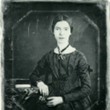Now we're getting somewhere: poems
Description
More Details
Subjects
Similar Titles From NoveList
Similar Authors From NoveList
Published Reviews
Publisher's Weekly Review
The cunning and taut lines in the irreverently funny latest from Addonizio (Mortal Trash) reveal a poet teetering on the edge of existential ennui. The collection opens with the humorous poem "Night in the Castle," in which an artist's grant has afforded the poet speaker palatial accommodations and she is carried away by grandiose flights of fancy: "I want to stay here & poison the king next/ I want to be a feared and beloved queen ordering up fresh linens &/ beheadings." Elsewhere, Addonizio responds to Walt Whitman's contention in "Song of Myself" that he might prefer to live among animals, declaring that animal life is probably not as idyllic as he imagines: "I know you like grass but it's no fun to be a pricey pre-hamburger/ ruminating with no TV." A true master of the bon mot, she declares in "Telepathy," "Men like to say they're not mind readers, but the ones I'm drawn to aren't/ readers at all." Several moments in these poems suggest a universal despair and loneliness that feels in keeping with the present moment, but Addonizio's incredible comedic timing and brilliance at subverting the reader's expectations ensures the mood is never too dark for long. These poems are brilliant reflections from the high priestess of the confessional. (Mar.)
Publishers Weekly Reviews
The cunning and taut lines in the irreverently funny latest from Addonizio (Mortal Trash) reveal a poet teetering on the edge of existential ennui. The collection opens with the humorous poem "Night in the Castle," in which an artist's grant has afforded the poet speaker palatial accommodations and she is carried away by grandiose flights of fancy: "I want to stay here & poison the king next/ I want to be a feared and beloved queen ordering up fresh linens &/ beheadings." Elsewhere, Addonizio responds to Walt Whitman's contention in "Song of Myself" that he might prefer to live among animals, declaring that animal life is probably not as idyllic as he imagines: "I know you like grass but it's no fun to be a pricey pre-hamburger/ ruminating with no TV." A true master of the bon mot, she declares in "Telepathy," "Men like to say they're not mind readers, but the ones I'm drawn to aren't/ readers at all." Several moments in these poems suggest a universal despair and loneliness that feels in keeping with the present moment, but Addonizio's incredible comedic timing and brilliance at subverting the reader's expectations ensures the mood is never too dark for long. These poems are brilliant reflections from the high priestess of the confessional. (Mar.)
Copyright 2020 Publishers Weekly.





























